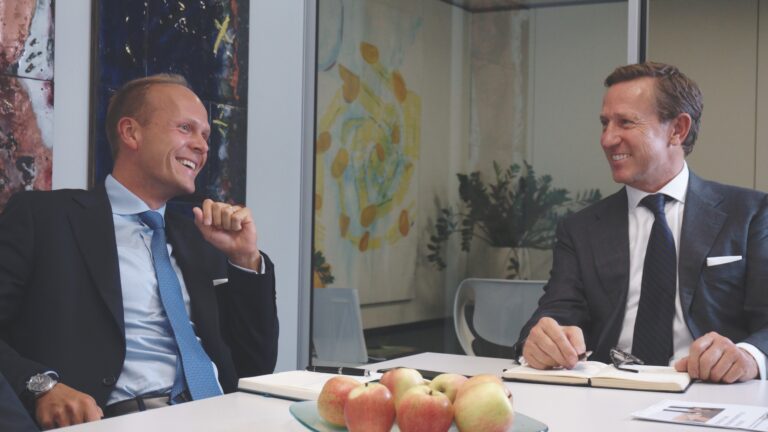From U.S. Interest Rates to the Hidden Costs of Sanctions: A Quick Dive into Economic Dynamics
Good Morning Ladies and Gentlemen
”First class business in a first class way.”
Pierpont Morgan, Jr
Online search trends for “day trading class” have skyrocketed by 700% in the past three months, reaching an all-time high. In contrast, gold has experienced a remarkable increase of 58% in the calendar year 2025 thus far, marking the most considerable annual rise in this category. The previous record was set in 2007, which saw an increase of 31.9%. While gold demonstrated strong performance during the financial crisis of 2007-09, it suffered a significant decline of 27.3% in 2013 as expectations of tighter monetary policy emerged and the US economy began to show signs of recovery.
U.S. Interest Rates
The U.S. Federal Reserve took the anticipated action by lowering its benchmark interest rate by a quarter percentage point, bringing it to a new range of 3.75% to 4.00%. This marks the second reduction of 2025 and aligns with market expectations. Additionally, the Fed announced that it would cease the reduction of its asset portfolio starting December 1, effectively ending a process that began in 2022. However, the decision was not unanimous; Fed Director Stephen Miran, a close advisor to President Donald Trump, advocated for a more substantial cut, similar to his stance in September. Conversely, monetary policymaker Jeffrey Schmid opposed the easing due to concerns over rising inflation. Fed Chair Powell tempered market expectations regarding any further rate cuts in December. Plenty of different perspectives.
The Hidden Cost of Sanctions
In the wake of Russia’s invasion of Ukraine, the Western world imposed sanctions with the intent of instigating regime change. Fast forward four years, and these sanctions have failed to achieve that goal. In fact, the Russian president has solidified his grip on power more than ever, bolstered by an increasingly repressive autocratic regime. Meanwhile, the countries that implemented these sanctions have witnessed a wave of political shifts, trending from liberal to more conservative governments, and an evolution continues to unfold. This situation suggests that not only do sanctions fail to produce the desired impact, but they may also lead to unintended political repercussions in the very nations that impose them. Ladies and Gentlemen, this is not a new phenomenon. We have observed this pattern repeatedly, yet it seems new generations of politicians must still learn this lesson for themselves.
Are Politicians Smart?
The challenge is not that politicians need to be the most intelligent individuals; rather, it lies in their ability to communicate their ideologies engagingly to potential voters. Unfortunately, uncomfortable truths often lack widespread support, leading to misleading statements from all sides. As a result, many nations are burdened with substantial debt and grappling with budget deficits. To address the core issue, while not all politicians may possess a sharp intellect, likely, voters are often even less informed. People tend to be conditioned by politicians and their parties, reminiscent of Ivan Pavlov’s classical conditioning experiment.
Classical Conditioning
Classical conditioning is a behavioural learning theory that illustrates how behaviours can be acquired through stimulus-response associations. Pavlov’s research shows that these connections can lead to the emergence of learned behaviours. This principle is frequently employed in politics as a strategy to secure electoral support. Politicians typically make a variety of pledges, including the creation of job opportunities, the reduction of tax burdens, the provision of free healthcare services, the implementation of complimentary public transportation, and the assurance of access to free education at both primary and tertiary institutions, among other incentives. The question of who will bear the cost of these promotions is frequently overlooked. As there is no magic, the result is the issue of emerging expenses and their management, which, unfortunately, does not receive the necessary attention under normal circumstances, leading to a continuous increase in budget deficits within countries and a rising debt ratio. Consequently, future generations are left to inherit growing levels of debt and its myriad challenges. Unfortunately, no free lunches exist, even if politicians want to make you believe that.
Ladies and Gentlemen
Feel free to send your messages to smk@incrementum.li. Many thanks, indeed!
I wish you an excellent start to the day and weekend!
Yours truly,
Stefan M. Kremeth
CEO & Head of Wealth Management
Incrementum AG – we love managing assets
Tel.: +423 237 26 60
Cell: +41 79 303 48 39
Im alten Riet 153
9494 Schaan/Liechtenstein
Mail: smk@incrementum.li

